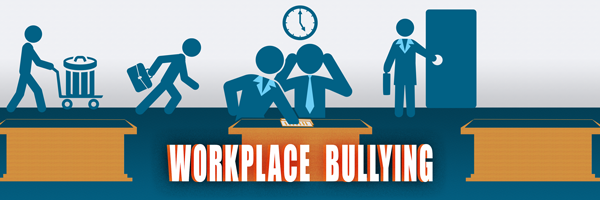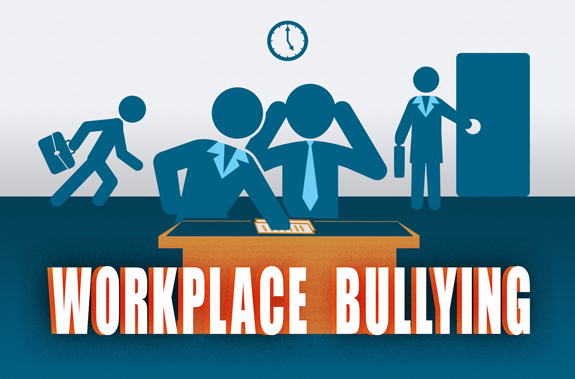

Laws and resources exist to help protect people with disabilities from being bullied at work.
Table of Contents
Bullying is a form of harassment involving continued and annoying actions. Bullying can include threats and demands as well as uninvited and unwelcome verbal or physical conduct. One of the places bullying can occur is at work. This is called workplace bullying.
Some people are bullied at work and aren’t sure what to do. Others are bullied and don’t know it’s happening. If you or someone you know is being bullied, there are laws and resources to protect you.
What is workplace bullying?
Workplace bullying happens when someone is mean toward a coworker on an ongoing basis. This can include efforts to undermine and do harm by threatening a person’s work status, self-confidence, or ability to perform a job. Bullying is not acceptable conduct.
In severe instances, workplace bullying can be considered abuse or assault. In these cases, criminal laws exist that can lead to the arrest and prosecution of a bully. Yet workplace bullying doesn’t have to be considered assault to be illegal.
Texas law prohibits the bullying of people with disabilities and older adults and requires immediate reporting and investigation. When bullying is directed toward a person with a disability, federal law considers it to be discrimination.
How do I know I’m being bullied?
A person can be bullied by a supervisor, coworker, customer, or even a visitor to the workplace. People often find it hard to accept they’re being bullied at work. They may question whether they’re mistaken. They may even blame themselves and hesitate to act.
Some things at work can be difficult or unpleasant but may not be bullying. For example, if someone complains about your work or a supervisor holds you accountable for your work, that is not bullying if it is done in good faith and in keeping with work policies and laws. Generally speaking, routine actions such as transfers or demotions are not bullying unless other factors are present.
Bullying at work can take many forms. If you think someone is bullying you but you aren’t sure, think about whether that person has purposefully done any of the following things on an ongoing basis:
- Used abusive, insulting, or offensive language toward you
- Left you out of important work meetings
- Left you out of social circles or work functions
- Gave you amounts of work that were unrealistic
- Gave you jobs that were impossible to perform in the time given
- Didn’t give you information you needed to do your job
- Changed your hours or scheduled your hours so that they were difficult
- Gave you pointless tasks that had nothing to do with your job
- Denied personal leave or training for unfair reasons
- Threatened to reprimand or fire you
- Yelled at you or criticized you in front of others
- Used or threatened physical violence toward you
- Pushed, shoved, tripped, or grabbed you
- Required you to do humiliating or inappropriate things
This list is far from complete, and other actions may also be considered bullying. Most bullying involves isolating someone and belittling them.
Bullying can cause profound effects, including stress, anxiety, nausea, headaches, stomach problems, sleeplessness, fatigue, and frequent illness. People who are bullied can experience depression, lose motivation, and have difficulty concentrating. In extreme cases, bullying can cause a person to want to hurt themselves.
What are my rights?
The Americans with Disabilities Act (ADA) and the Civil Rights Acts of 1964 and 1991 are federal laws that help people with disabilities who are bullied at work.
The Civil Rights Acts state:
- Harassing job applicants or workers because they have disabilities or are thought to have disabilities is illegal.
- Harassment is illegal when it is so frequent or severe that it creates a hostile work environment or results in a change in work status such as being fired or demoted.
- Complaints of harassment can result in legal anti-discrimination proceedings if the bully is not also disabled or in another protected class.
The ADA — and by reference, Section 504 of the Rehabilitation Act of 1973 — states that it is illegal to, “coerce, intimidate, threaten, or interfere with any individual in the exercise or enjoyment of … any right granted or protected” by the law.
Under the ADA, people with disabilities have the right to:
- benefit from all employment opportunities without discrimination in recruitment, hiring, promotions, training, pay, social activities, and other privileges;
- not be questioned excessively about disabilities before a job is offered; and
- receive reasonable accommodations for physical and mental disabilities.
Other ADA rights relate to building modifications like ramps and elevators as well as assistive technology.
What can I do if I’m bullied?
Protect your health and safety: Put your health and safety first. If you feel unsafe, leave the situation immediately and get help from someone you trust. Take steps to handle any stress or anxiety and address any physical problems.
Document everything: Keep records and write down everything that happens when you are bullied, including when it happened and where it happened. If you need help doing this, ask a family member, a friend, or someone else you trust. Keep any emails or notes that the bully may have sent you. If you need to and feel safe doing so, you can record interactions using a recording device such as your phone. Legally, Texas allows people to record interactions as long as one of the people in the interaction (that would be you) is aware that it is being recorded. However, other states may require that you ask permission before you record interactions with another person.
Get legal help: Several organizations can provide you with advice or even legal assistance.
- Disability Rights Texas safeguards the rights of Texans with disabilities in the workplace and has staff attorneys who are experts in laws that protect people. For more information, visit disabilityrightstx.org and call 1-800-252-9108 (voice) or 1-866-362-2851 (sign language video phone).
- Equal Employment Opportunity Commission (EEOC) enforces federal anti-discrimination laws in the workplace and investigates charges of discrimination. For more information, visit eeoc.gov and call 1-800-669-4000 (voice) or 1-800-669-6820 (TTY).
- U.S. Department of Justice Civil Rights Division upholds the rights of all Americans and enforces federal laws against discrimination on the basis of race, color, sex, disability, religion, family status, and national origin. For more information, visit justice.gov/crt and call 800-514-0301 (voice) or 800-514-0383 (TTY).
